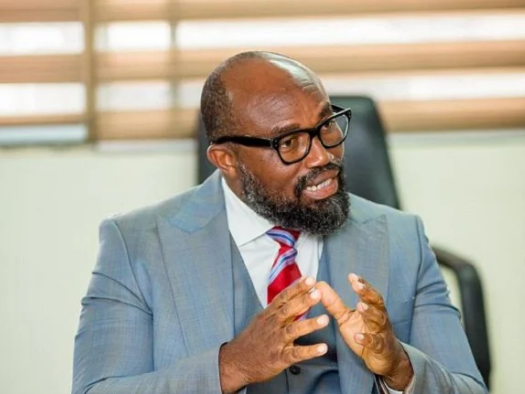Daniel McKorley, a prominent Ghanaian businessman popularly known as McDan, has vehemently defended his right to critique government policies, even if he has personally benefited from the ruling administration. His stance comes in response to criticism from Gabby Asare Otchere Darko, a leading figure within the New Patriotic Party (NPP), who suggested that McDan’s criticism was inappropriate given his past dealings with the government. McDan argues that his primary concern is the well-being of the business community as a whole and that remaining silent on detrimental policies would be a disservice to the private sector, the engine of economic growth. He underscores his commitment to constructive criticism, asserting that it is essential for shaping effective policies and fostering a healthy business environment.
McDan’s critique centered on the perceived unresponsiveness of certain government ministers to the concerns of entrepreneurs. He maintains that his comments were misconstrued as a blanket condemnation of the NPP government, whereas his intention was to highlight specific policy shortcomings that hindered the private sector’s growth. He stresses the symbiotic relationship between government and the private sector, arguing that it is the government’s responsibility to create an enabling environment for businesses to thrive. Therefore, speaking up against policies that stifle entrepreneurial activity, even if one has personally benefited from the government in other areas, is not only justifiable but also a necessary contribution to national development.
The core of McDan’s argument rests on the distinction between personal gain and the broader interests of the business community. He refutes the notion that receiving government support should preclude him from expressing concerns about policies that negatively impact the private sector. He characterizes such a stance as “selfish,” emphasizing that his commitment extends beyond personal interests to encompass the collective well-being of entrepreneurs and the overall economic health of the nation. He views his outspokenness as a form of responsible citizenship, contributing to policy improvements that benefit everyone, not just himself.
McDan’s willingness to criticize the government despite potential repercussions speaks to his belief in the importance of open dialogue and constructive engagement. He dismisses the suggestion that he should remain silent simply because he has benefited from the NPP government. He asserts that true loyalty lies in offering honest and transparent feedback, even if it is critical, to help the government refine its policies and better serve the needs of the business community. He underscores the importance of collaboration between the public and private sectors, arguing that criticism, when delivered constructively, can be a powerful catalyst for positive change.
This incident highlights a broader debate about the relationship between business leaders and the government. Should those who benefit from government policies remain silent when those same policies harm others or stifle overall economic growth? McDan’s position is that silence in the face of detrimental policies is not an option. He argues that entrepreneurs have a responsibility to advocate for policies that foster a thriving business environment, even if it means risking potential backlash from those in power. He champions the idea of a collaborative relationship between government and the private sector, where open communication and constructive criticism are valued as tools for improvement.
McDan’s outspokenness serves as a reminder that economic progress requires more than just individual success stories. It necessitates a system where entrepreneurs feel empowered to voice their concerns, contribute to policy discussions, and hold the government accountable for creating an environment conducive to growth and innovation. His willingness to challenge the status quo, even as a beneficiary of government support, underscores the importance of prioritizing the collective good over personal gain in the pursuit of sustainable economic development. This principle, he argues, is essential for fostering a vibrant and resilient private sector capable of driving national prosperity.


